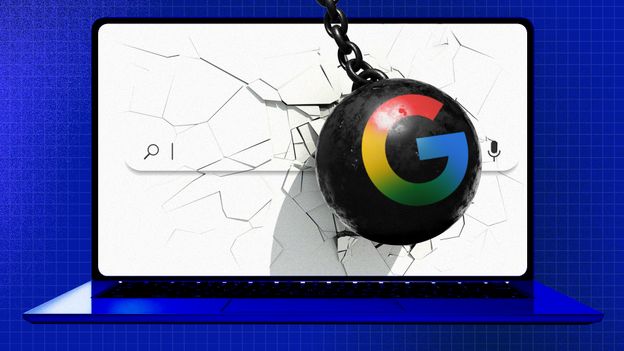An estimated 68% of internet activity starts on search engines and about 90% of searches happen on Google. If the internet is a garden, Google is the Sun that lets the flowers grow.
This arrangement held strong for decades, but a seemingly minor change has some convinced that the system is crumbling. You’ll soon see a new AI tool on Google Search. You may find it very useful. But if critics’ predictions come true, it will also have seismic consequences for the internet. They paint a picture where quality information could grow scarcer online and large numbers of people might lose their jobs. Optimists say instead this could improve the web’s business model and expand opportunities to find great content. But, for better or worse, your digital experiences may never be the same again.
On 20 May 2025, Google’s chief executive Sundar Pichai walked on stage at the company’s annual developer conference. It’s been a year since the launch of AI Overviews, the AI-generated responses you’ve probably seen at the top of Google Search results. Now, Pichai said, Google is going further. “For those who want an end-to-end AI Search experience, we are introducing an all-new AI Mode,” he said. “It’s a total reimagining of Search.”
You might be sceptical after years of AI hype, but this, for once, is the real deal.
People use Google Search five trillion times a year – it defines the shape of the internet. AI Mode is a radical departure. Unlike AI Overviews, AI Mode replaces traditional search results altogether. Instead, a chatbot effectively creates a miniature article to answer your question. As you read this, AI Mode is rolling out to users in the US, appearing as a button on the search engine and the company’s app. It’s optional for now, but Google’s head of Search, Liz Reid, said it plainly when launching the tool: “This is the future of Google Search.”



Add Stract.com it is a little behind in web crawling of current info, but the results are like how google used to be around 2010. Just relevant content info, no ads (yet) and occasional randomness